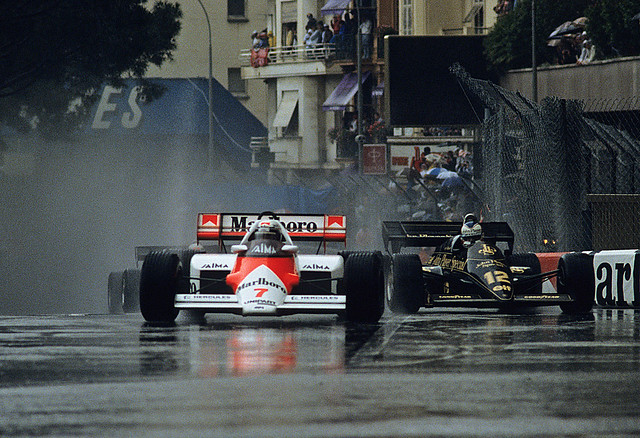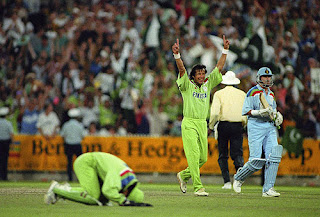The introduction of plain olive packages for cigarettes is seen as a bit of a breakthrough by our flame haired matchbox model PM and her bespectacled sidekick; certainly we will probably see further reductions in the take up of smoking, however as this chapter of history closes, we also see the passing of some rather memorable liveries.
In the 1970s and 80s especially, tobacco companies splashed their logos and colours all over racing cars. JPS had black and gold Lotii, Marlboro's red and white chevrons appeared on McLarens, and Guy Ligier's very very French, Gallic and blue F1 cars ran either Gitanes or Gauloisse adverts depending on who was prepared to court them at the time. We could also mention Camel, Rothmans, Mild Seven, Sobranie, West...
Kerry Packer's portable picture palace not only brought coloured clothing to that most genteel of passtimes, cricket, but also forever changed the boundary fences from white pickets as seen in people's gardens to golden walls bearing the names of Messrs Benson and Hedges. Meanwhile, Winston and Winfield would lend (throw piles of money) their names at sporting trophies for NASCAR and Rugby League.
Magazine adverts implored us to think of out "T Zones", whilst the Marlboro Man and Joe Camel rode off into the desert on their motorcycles.
All in all, society had a lovely time quietly puffing away indoors; then huddled outside when the law changed, and even I can remember at concerts, the fug would be so thick that you could cut it with a rolled up newspaper and still see where you'd swiped.
People may have died of lung cancers, emphasismer, heart diseases and other miasmas but then again, so did King George VI; so that made it all right royal and proper.
Curiously I wonder how many lives that tobacco advertising saved.
Motor Racing is hideously expensive; tobacco sponsorship not only coloured race cars for the best part of three decades, but inadvertently through advances in materials technology, engine and braking improvements, we probably now drive around in safer and more efficient motor cars than we would have otherwise done.
The money which flowed in from those selfless martyrs, who died for my entertainment (through helping to pay for motor racing sponsorship), probably helped to pay for the development of better brakes, engine technologies like valve timing and most importantly the beginning of proper crash testing.
When the world wakes up on that new day of olive tobacco packaging, society gains better health and live longer lives, but it also loses something of its cultural past, although not much to be honest.



No comments:
Post a Comment